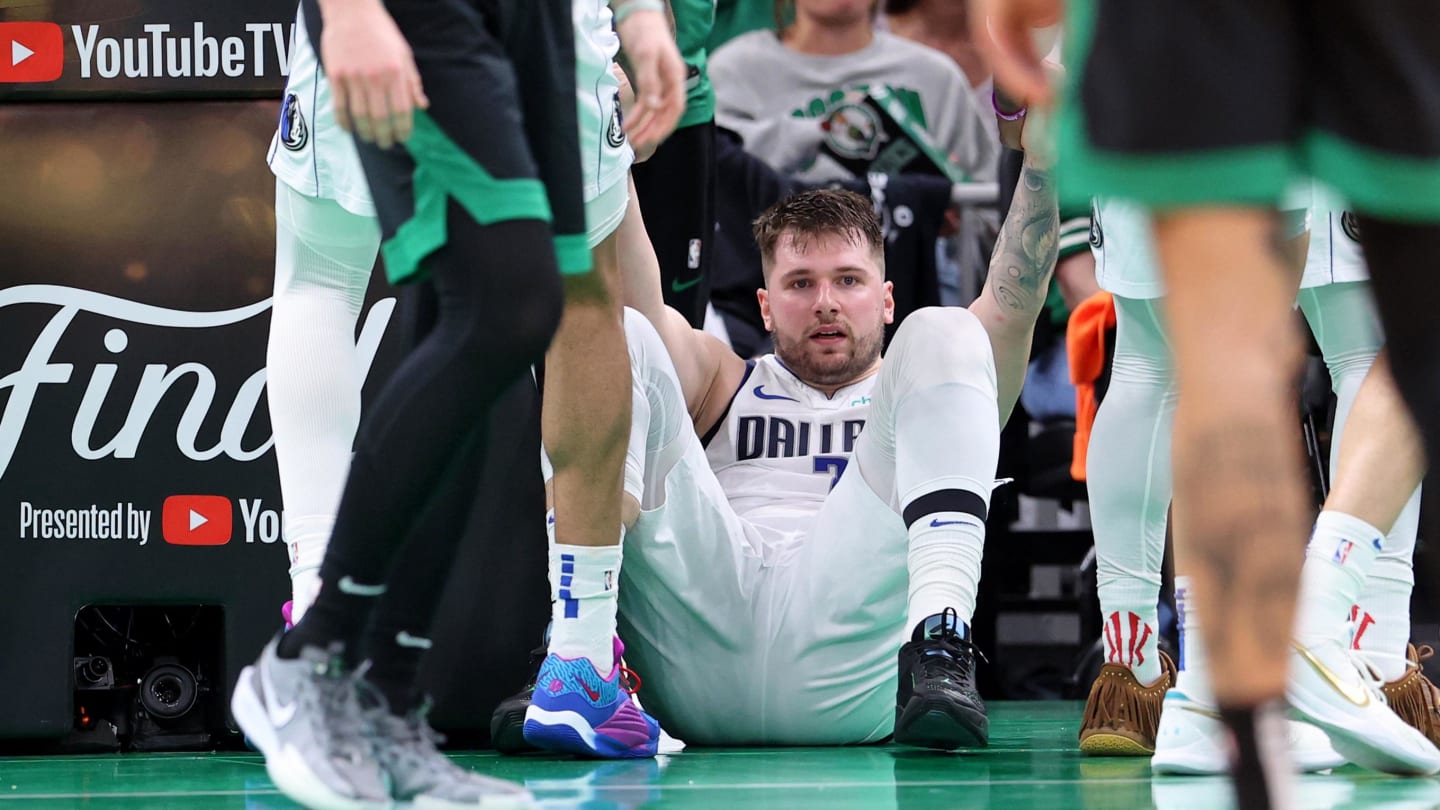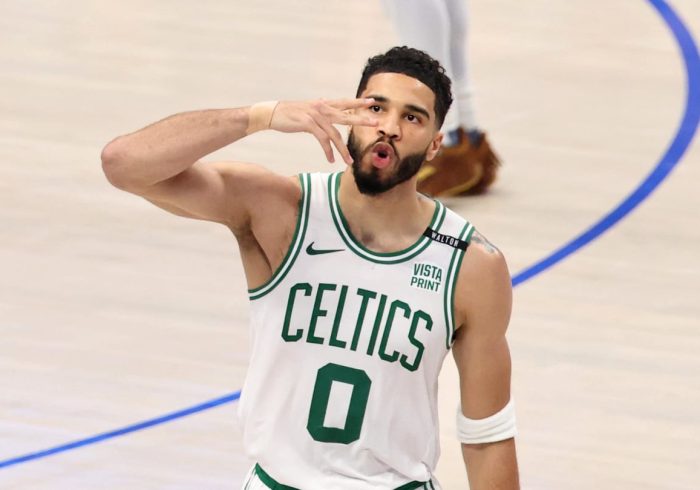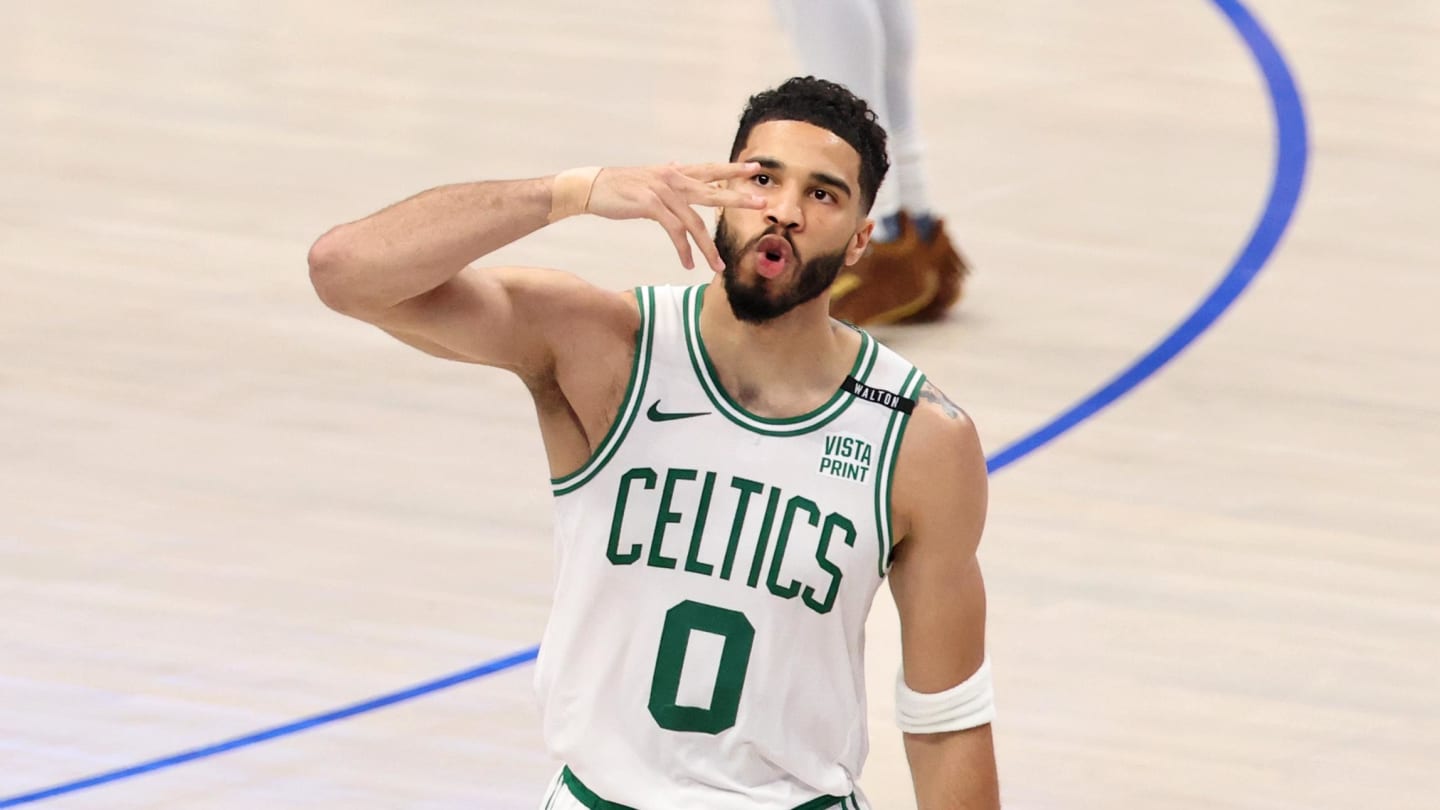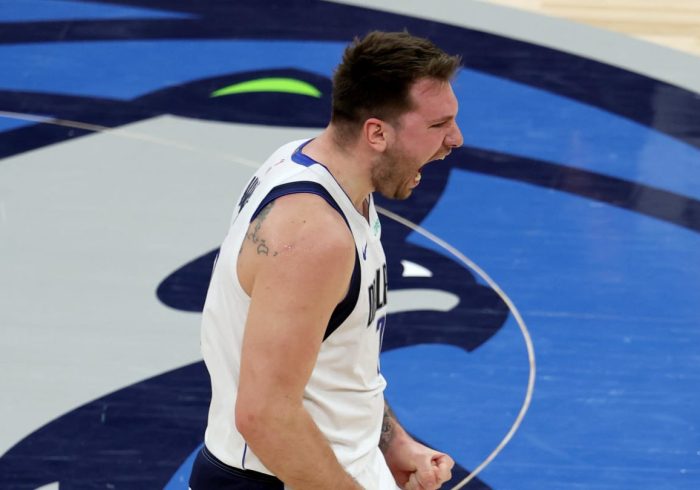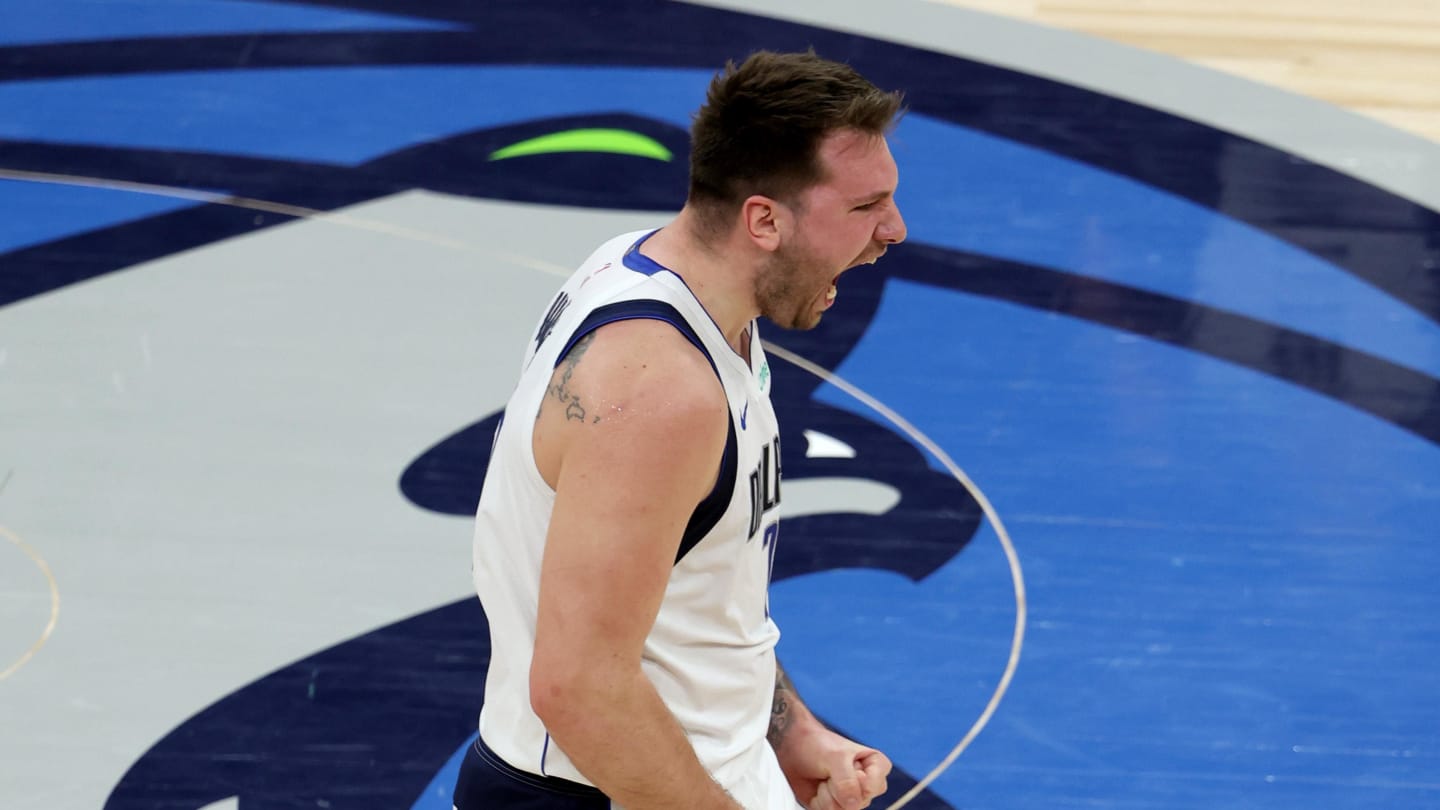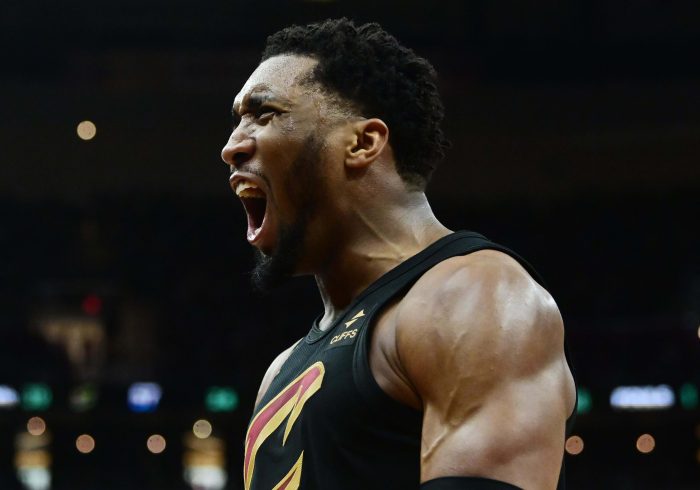The Dallas Mavericks are down two games to none against the Boston Celtics in the NBA Finals, and Luka Doncic admitted after the Game 2 defeat on Sunday that each loss felt like a “missed opportunity.”
Despite leading the game with 32 points and recording a triple-double, Doncic wasn’t pleased with his own performance on Sunday night, and he took ownership for some of his sloppy play when speaking to reporters after the game.
“Every game we lose is a missed opportunity for us,” said Doncic, via Joey Mistretta of ClutchPoints.
“I think my turnovers and missed free throws cost us the game. So I’ve got to do way better in those categories,” he added, via SI’s Grant Afseth.
Doncic shot an uncharacteristically poor 4 for 8 from the free throw line and turned the ball over eight times in Sunday’s loss. The four missed free throws and eight turnovers were both postseason highs, and he’s now 6 for 13 from the charity stripe during the NBA Finals and has as many turnovers (12) as he does assists.
Although Doncic is shouldering the blame, the 2–0 deficit is hardly his fault. The rest of the team has shot a putrid 5 for 32 from three-point territory through the first two games of the series, and Kyrie Irving has yet to connect from beyond the arc. Irving’s 28 points through Games 1 and 2 were fewer than the 32 Doncic provided on Sunday night alone.
Game 3 on Wednesday night will prove crucial for Dallas as they look to claw back against the Celtics, and although Doncic noted that he’ll have to take care of the ball better and get the job done at the free throw line, the onus is on his teammates to step up, too.
